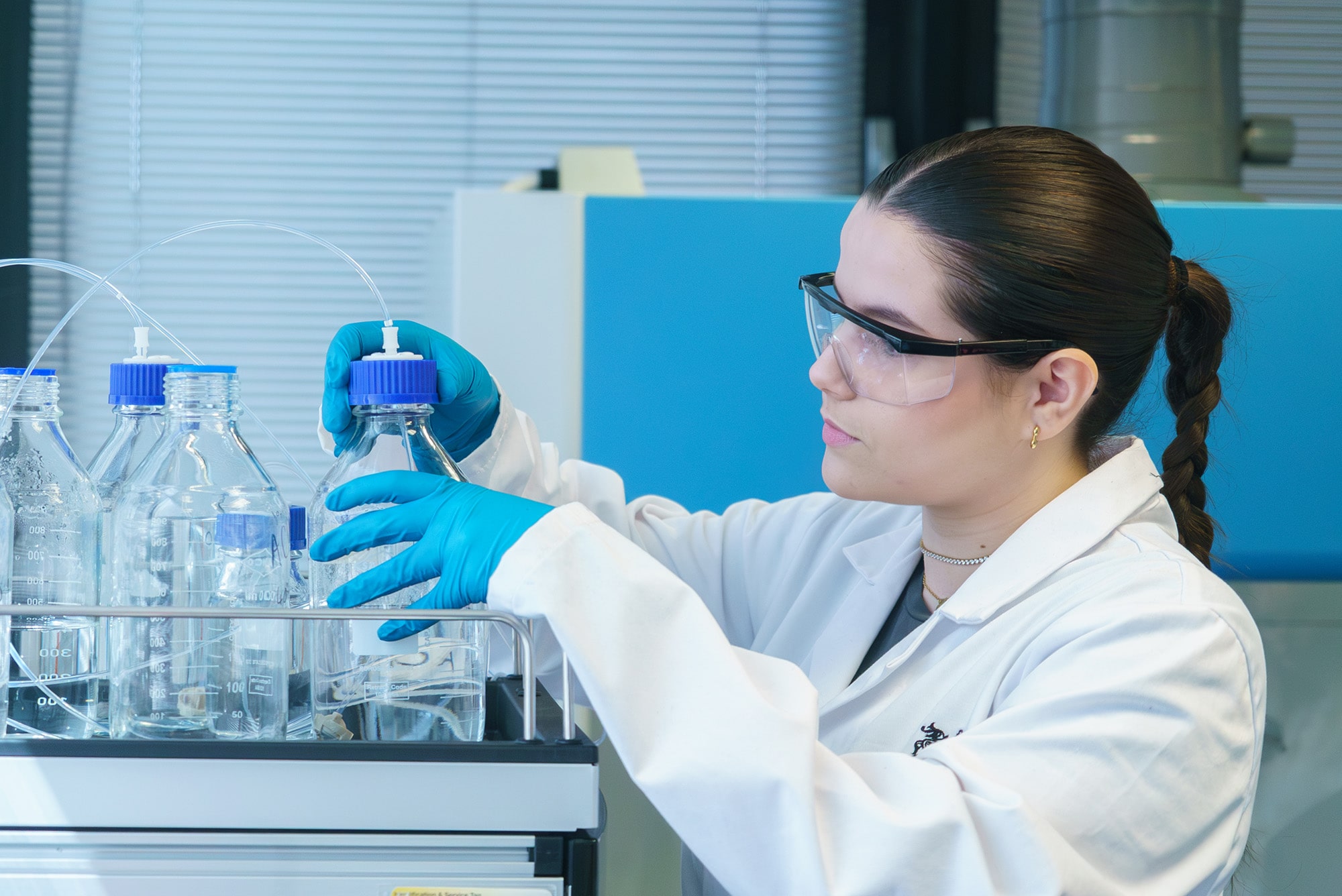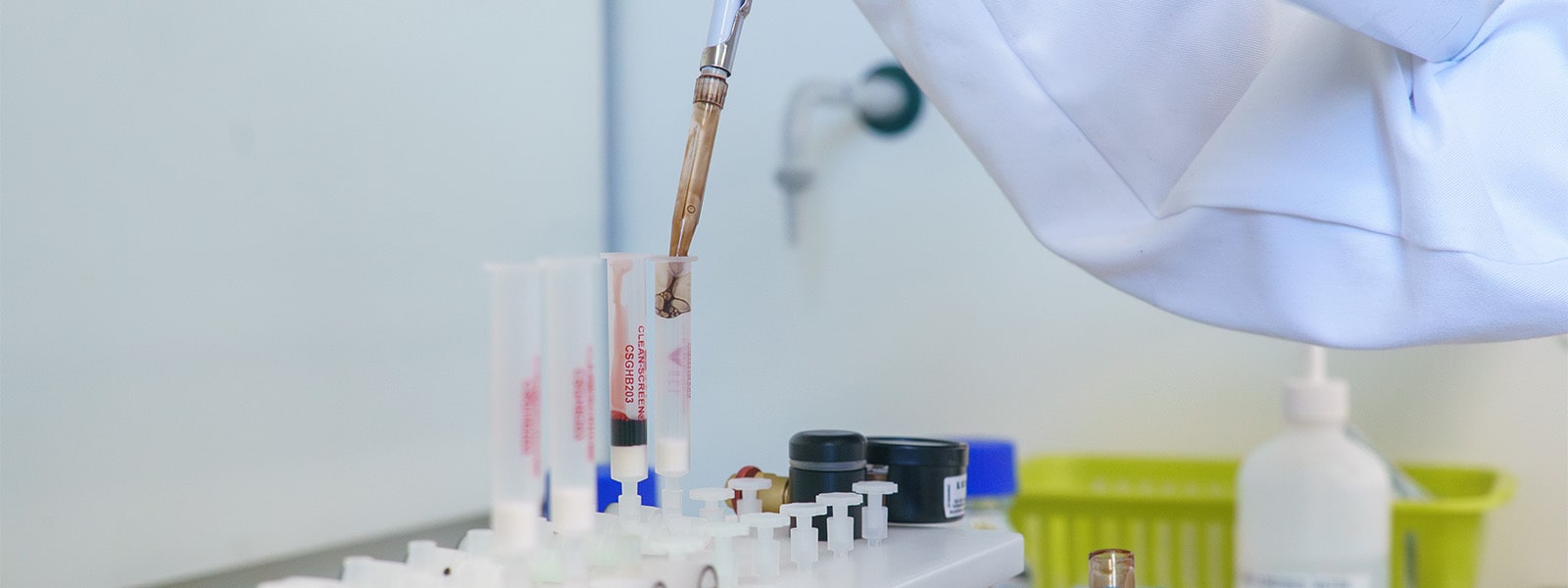Module Overview
In this module students have the opportunity to develop an in-depth understanding of the fate of toxins within the human body and the analysis of biological specimens that builds upon the knowledge gained from modules previously studied.
Laboratory work will be based upon case work and the development of new methods providing a realistic experience of the role of the forensic toxicologist in legal cases. Use of external practitioners, laboratory visits and specialist equipment aim to further add to this experience and strengthen the opportunity for employment in this highly competitive field.
Laboratory problems will be less directed and aim to further develop skills in teamwork and independent learning. Students are also expected to develop skills in interpretation of results and presentation in court, as expected for a professional forensic toxicologist within the present legal system. New method development will be backed up by consideration of research developments across all aspects of the field.
Module Overview
This module aims to develop students' knowledge of the value of statistical data in analytical science and how this data can be used to design experiments alongside extracting meaning from data acquired from analytical experiments. The module will also aim to provide knowledge of statistical software and how to best utilise it to achieve reliable and meaningful results and their presentation in a wide range of professional contexts.
Module Overview
This module is designed to develop specialist knowledge in the principles of separation science and hyphenated methods of analysis, principally mass spectrometry. The programme introduces instrumental fundamentals, design of experiments, sample preparation and derivatisation. Including case studies related to applications in specialist areas and recent advances.
Specialist knowledge is reinforced by the ‘hands-on’ practical component and includes use of the research instrumentation for collecting and analysing data, troubleshooting, method development/enhancement. The practical sessions involve following written experimental protocols, working in a small group, and working to deadlines.
Module Overview
This module is designed to introduce the main drugs and poisons, biological samples, case types, and laboratory techniques in forensic toxicology. This includes the pharmacology of controlled drugs, prescription, and over-the-medications. Students can also acquire knowledge of key forensic concepts such as chain of custody, quality control, and presentation of data. Practicals will focus on sample handling, case strategy, and decision-making in forensic toxicology casework.
Module Overview
This module comprises two main components:
The first will provide fundamental knowledge concerning strategies for Sampling, Data analysis, Reporting, Quality assurance and Quality control, Numerical and IT skills, and Safety in relation to analytical science.
The second will provide the general introductory principles and a theoretical understanding of a range of instrumental analytical techniques and their applications. The module aims to provide the background knowledge needed for an understanding of the various principles discussed in greater detail in other modules
Module Overview
This module provides students with opportunity to apply chemical knowledge and laboratory skills to an extended practical research study. This is designed to further develop professional skills including the use of online literature and chemical data searching, the ability to critically review relevant published literature, and written and oral presentation of research activities.
Module Overview
This module aims to develop systematic personal and professional development of a student in a specialist area of chemistry to enhance employability. This is achieved through development and execution of a personal learning plan designed using a process of self-reflection around five development themes: personal development; professional skills development; technical skills development; research interests; career development.





